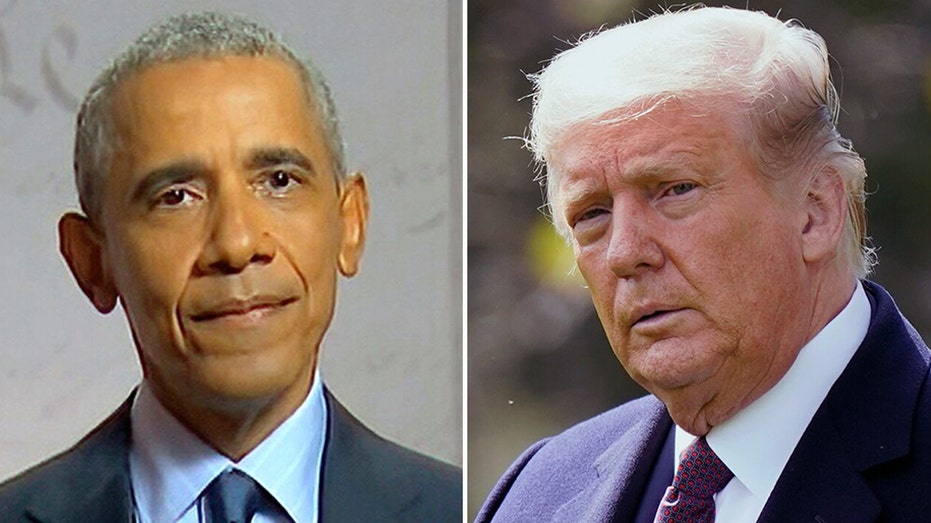
The Paris climate accord does little to advance U.S. interests and only serves to diminish our strength and national security. The removal process needs to begin on day one.
President Trump has vowed to once again extract the U.S. from the Paris climate agreement. Our entrance (both times) is dubious; but so are the impacts of the extensive contractual obligations required of the treaty’s signatories.
The accord does little to advance U.S. interests and only serves to diminish our strength and national security. The removal process needs to begin on day one.
The Paris climate agreement is an international treaty aimed at limiting global temperature increases to 1.5°C above pre-industrial levels and committing to net zero emissions by mid-century.
Adopted by 196 parties at the U.N. climate change conference (COP21) in Paris, in December 2015, it went into effect the following November. Participating countries submit their national climate action plans, which should become increasingly ambitious every five years.
THE SIMPLE SOLUTION TO THE ‘CALIFORNICATION’ OF AMERICAN ENERGY POLICY
Under our constitutional form of government, treaties are to be ratified by the Senate. President Obama, however, evaded such a review by merely calling it an executive agreement, for it surely would not have received the requisite two-thirds vote. But it is in fact a treaty; even the U.N. calls it such. President Biden simply followed Obama’s footsteps with an executive order to reenter.
A proposition of this magnitude deserves critical analysis and examination before enlisting our entire nation as a participant. Foregoing senatorial review undermines an essential component of the Constitution’s checks and balances.
The Paris Agreement threatens U.S. ability to self-govern, something most Americans value and cherish. We should not be beholden to the whims of international leaders with political agendas. Our elected officials have responsibilities to their constituents, not U.N. bureaucrats and foreign organizations.
TRUMP’S ENERGY AGENDA CAN MAKE AMERICA AFFORDABLE AGAIN
U.S. energy policy needs to be derived from legislators who are voted into office by U.S. citizens. The climate accord instead compels our leaders to continually negotiate domestic energy policy with a coalition of external governments and institutions, all demanding that abundant and cheap carbon-based fuels be replaced with expensive and unreliable so-called green energy, namely wind, solar and electric vehicle technology.
Striking at the heart of federalism, individual states are also essentially forced to cede their powers to the president who has taken control of their energy sectors. States should be free to navigate and implement what works best for their energy needs.
Several decades of climate policy both here and abroad have taught us a few things regarding the folly of such rash decisions.
I KNOW WHAT PRESIDENT TRUMP’S ENERGY POLICY WILL BE. I USED TO RUN HIS ENERGY REGULATORY AGENCY
Our European friends, who have implemented aggressive net zero policies and endorse the agreement, are experiencing the highest electricity rates in the world, shortages, and even deindustrialization.
Germany’s production peaked in 2017 and has been in a state of decline ever since. High energy costs are often blamed. Britain too is suffering from ill-conceived climate initiatives. Some states in the U.S. who have individually adopted ambitious wind and solar portfolios are also witnessing skyrocketing electricity prices, blackouts and energy shortfalls.
The treaty functions on the premise that renewable energy is cheap and reliable, however, it is anything but that. Wind and solar are not low-cost substitutes for fossil fuels, nor can they provide the secure and stable energy Americans expect to run their households and businesses.
CLICK HERE FOR MORE FOX NEWS OPINION
The treaty also serves as a transfer of wealth. Rich countries, largely held responsible as the greatest contributors to climate change, are expected to alleviate their guilt by pledging money into a fund that assists developing countries in mitigating its effects. But a severe lack of transparency, loose guidelines and lax reporting on the donated finances are raising questions. Some of the funds have been used for fossil fuel projects, airport extensions, chocolate shops and other economic ventures seemingly unrelated to climate issues.
Developing nations ought to be free to utilize the very resources that allowed wealthy countries to flourish. No nation ever became rich without the employment of fossil fuels. We should be partnering with poor countries to facilitate a rise out of poverty rather than further pushing them toward it with demands of a so-called transition to renewables.
Energy produced on U.S. soil is also among the cleanest in the world. Restricting production here prompts other nations with lax environmental standards and zero interest in the treaty to ramp up theirs. The effort simply becomes futile.
The agreement assumes that a massive push toward net zero will miraculously slow the rate of global warming, but it will produce no detectable climate benefits. Instead, trillions will have been diverted from productive investments and put toward political purposes.
How American consumers power their economy should not be subject to the whims of any foreign entity.